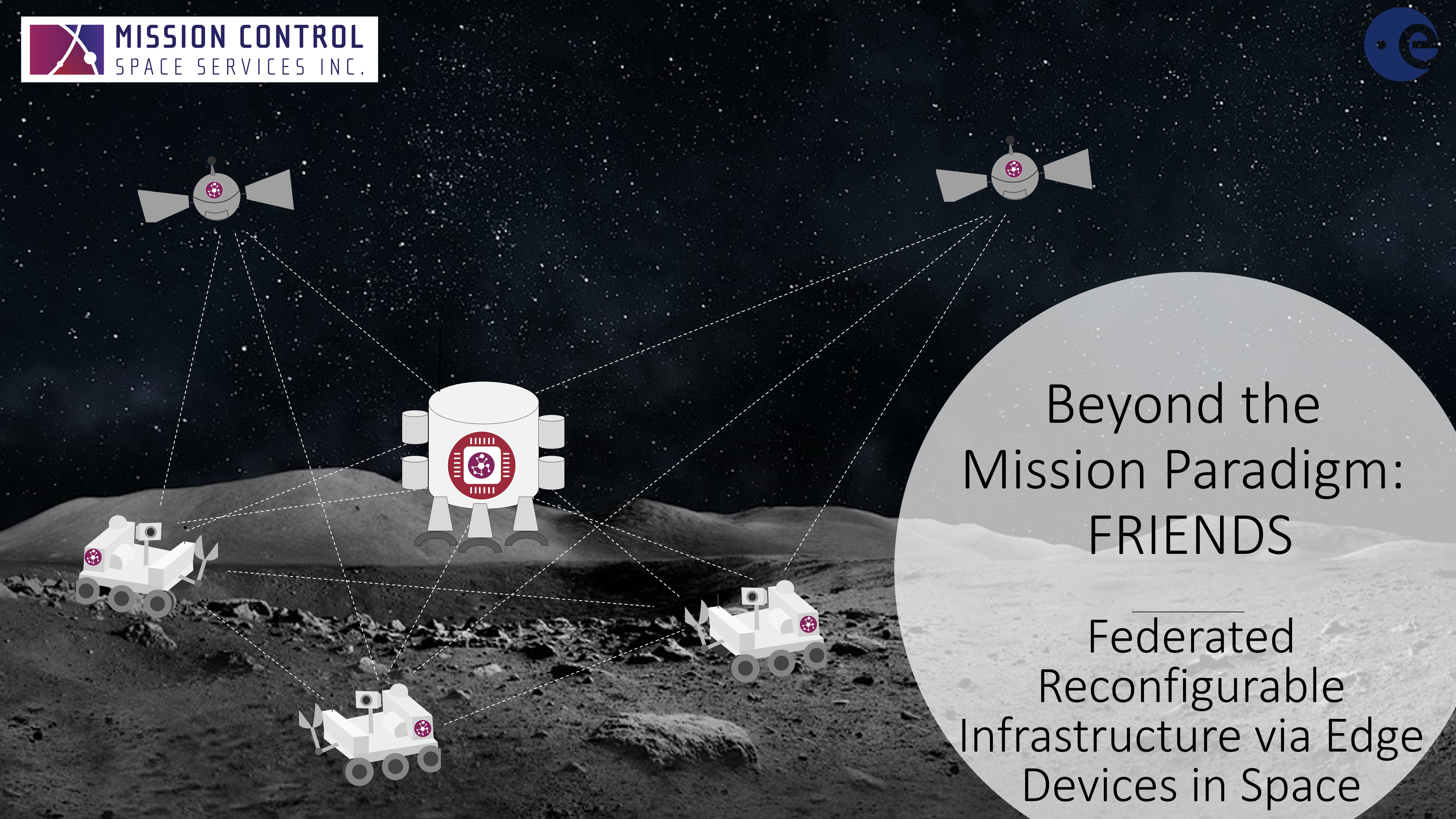Early space missions consisted of bespoke components communicating with facilities on Earth. Today this model has been updated with off-the-shelf components and reusable launch systems that lower mission cost into low-earth orbit. Extending this model to develop a sustainable off-earth economy requires bringing the concept of reconfigurable computing agents to deep space.
Mission Control Space Services (Mission Control) proposes a new distributed compute paradigm for space assets that uses low-power hardware and machine learning to provide secondary life stages to space components; creating a robust, versatile framework we call Federated Reconfigurable Infrastructure via Edge Devices in Space (FRIENDS).
Space mission lifecycles go from Phase A to E, after which assets are often abandoned. This open-loop process creates issues with high mission costs from single-use systems and worsens space debris. To steward our responsibilities in space we must update the mission concept to embrace lifecycles that re-purpose components.
Moving away from the single-use spacecraft and towards a mission-agnostic paradigm, software-defined systems can repurpose assets to accomplish new tasks. Compute systems with cognitive software can be repurposed in this way, especially when coupled with distributed learning approaches.
Mission Control aims to demonstrate FRIENDS’ feasibility by retrofitting its rover platforms with deep learning software that turns each one into a node in a lunar network. Using low-power neural network implementations our models will be updated across the network using federated learning, foregoing large data transfers. As additional compute becomes available on the lunar cloud, such as the telemetry system on a lander, FRIENDS repurposes these assets to aid in other tasks. We will deploy the FRIENDS system in our analogue lunar environment to demonstrate its potential for reuse and reconfigurability in a new era of space-based Cognitive Cloud Compute.

